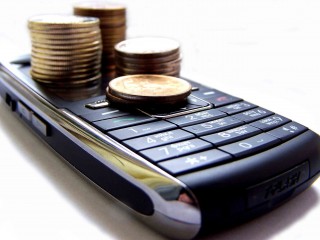Safaricom, owners of Africa’s first mobile money platform, M-Pesa has revealed that plans to launch its mobile money service in Ethiopia have reached an advanced stage. According to reports, the communication giants are ‘in advanced talks’ with the government officials in Ethiopia to see the move materialize quickly.
M-Pesa is bent on maintaining its grip in the mobile money market that boasts of over 100 million customers in Africa, and this latest move is a giant stride towards achieving the feat. This plan will see myriads of unbanked citizens in Ethiopia gain access to a more affordable banking system using their mobile phones.
According to an exclusive report by Reuters, it was revealed that Vodafone will license the use of the M-Pesa brand to an Ethiopia-based bank, while Safaricom will host the servers in Nairobi. Vodafone, a British multinational telecommunications conglomerate is the parent company of Safaricom while M-Pesa is one of its subsidiaries.
Ethiopia’s banking sector still operates under a traditional financial system which has generated a lot of debate. Many financial experts in the country have called for a reform in the sector. In a country where the banking sector is currently dominated by the Commercial Bank of Ethiopia (which currently holds around 70 percent of assets), the arrival of M-Pesa is truly the birth of a saviour.
M-Pesa’s role in Kenya’s economic transformation has been widely acknowledged. Since it was launched in 2007 it has grown to become the choice of many households in Nairobi, its capital. With reports of its proposed move to Ethiopia breaking the internet, some experts have highlighted how it will improve the cyclical process of walking a far distance to make payments and receive money in some parts of the country.
Mobile money is king
M-Pesa was launched in 2007 and has recorded success as the pioneer mobile money platform in the continent. Michael Joseph led the team that founded M-Pesa and was also a founding CEO of Safaricom in Kenya. It was launched with a vision to bridge the gap between senders and receivers of money in the country after noticing the long distance tied to making transactions.
According to reports by Global System for Mobile Communications (GSMA), the number of people with mobile money accounts outpaced the bank accounts in sub-Saharan Africa. More than 40 percent of the adult population is using mobile money services on an active basis in seven sub-Saharan African countries with Kenya topping the list. M-Pesa is Kenya’s most popular mobile money service and has more than 25 million Kenyan users and over 120,000 agents who handle deposits and withdrawals around the country.
The impact of M-Pesa and other mobile-money services in Kenya is unprecedented. According to a study carried out by MIT, the platform has helped an estimated 185,000 women move from farming to business occupations in Kenya. Thus, the platform will be a great addition to a country like Ethiopia that has more than half of its population employed in farming.
With the increasing access to mobile phones and soft loans through this platforms, mobile money has continued to propel development and lift people out of poverty across the remote communities in Kenya. This might be a turning point in the President Abiy Ahmed’s move to revitalize the economy by quashing long bureaucracy and giving unfettered access to foreign investors such as Safaricom.
The introduction of M-Pesa to the Ethiopian economy will not only expand the country’s financial sector which is monopolized but also create employment opportunities for young people in the country. More importantly, traders in the country will benefit from the new service that is about to take Ethiopia by storm.








